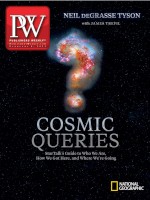In a 1990 interview with PW, Theodor Geisel, aka Dr. Seuss, said he considered The Lorax “the best thing I’ve ever written,” admitting that he was “a preacher in that book, but I got away with it by disguising the message.”
Originally published in 1971, in the earliest days of the modern environmental movement, The Lorax was written as a protest against excessive logging in the author’s home state of California. Fifty years on, the over-extraction of natural resources from the planet has not abated, and the book’s central message—“Unless someone like you cares a whole awful lot, nothing is going to get better./ It’s not.”—seems more relevant than ever. To mark a half century of publication, Random House and Dr. Seuss Enterprises are celebrating the legacy of the inimitable mustachioed creature.
“Part of the book’s enduring quality is that, at the end, the Lorax says ‘It’s up to you,’ which puts the child reader into the role of making a difference—it’s empowering,” says Mallory Loehr, executive v-p and publisher of Random House Books for Young Readers. The publisher is releasing new books under the Seuss and Lorax brands in 2021, including a gift title (Thank You for Being Green, which pubbed in January) and several board books, such as Let’s Go to the Garden! With Dr. Seuss’s Lorax (Feb.) and Let’s Go to the Beach! With Dr. Seuss’s Lorax (May).
“We always work to make sure the books are as environmentally friendly as possible,” Loehr says, explaining that her production team uses 100% recycled papers for all Lorax-branded products.
Susan Brandt, president of Dr. Seuss Enterprises, which oversees Geisel’s intellectual property, points to The Lorax’s hopeful tone to explain its longevity. It conveys the message that “the next generation has to do better than the prior,” she says.
To further this notion, Dr. Seuss Enterprises is ramping up its Lorax Project initiative, which offers resources for individuals and communities seeking to effect positive change. On Earth Day, April 22, the Lorax Project and Random House will launch the “I Speak for the Trees” grant, which, Brandt says, will fund 101 projects over the course of the year. “Anyone can apply with an idea: ‘What do you want to do to better your environment or community?’ ”
As for the book’s continued relevance, “The Truffula Trees are today’s Amazon rainforest,” Brandt says. “The Brown Bar-ba-loots are the lemurs or silverback gorillas that are disappearing; the Humming-Fish can represent our overfished oceans; those Swomee-Swans are the beautiful birds that are endangered—the snowy owl, the condor, the kiwi.” In other words: “We are all the Lorax.”
Return to the main feature.



 Volume 268
Issue 6
02/08/2021
Volume 268
Issue 6
02/08/2021





